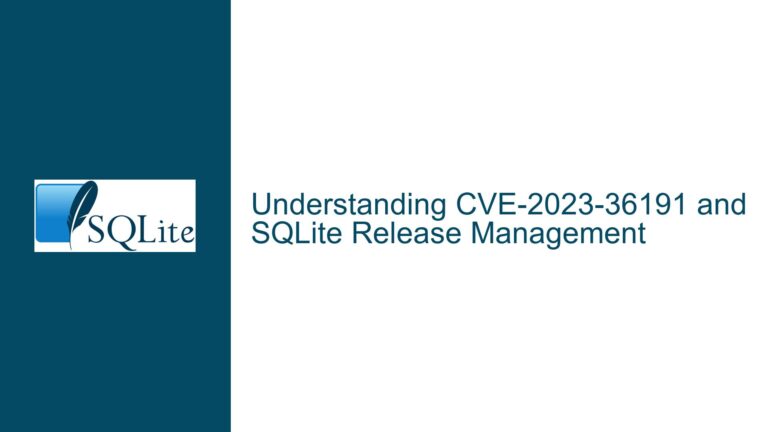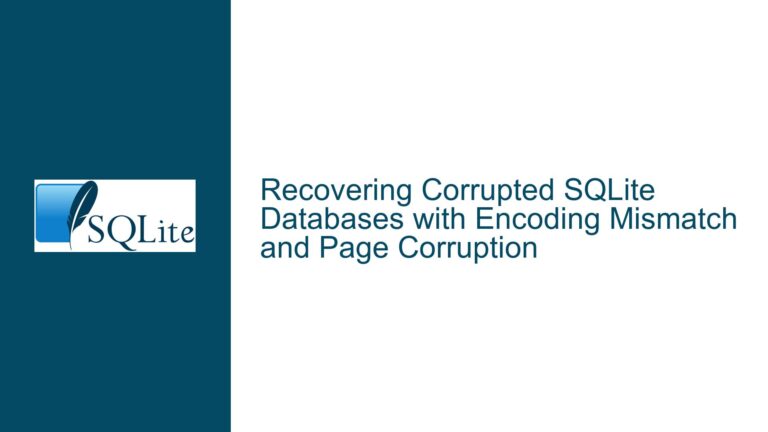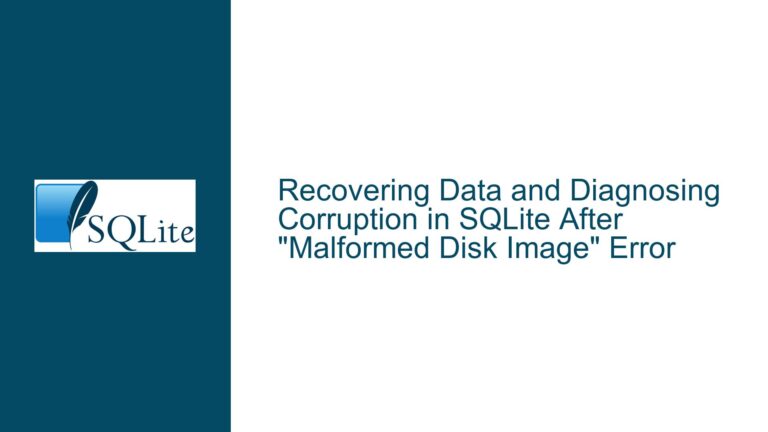Blocked IP Access to SQLite.org Due to Anti-Spider Defenses
Aggressive Spider Activity and IP Null-Routing on SQLite.org
Issue Overview
The SQLite.org website employs anti-spider defenses to mitigate excessive resource consumption caused by rogue web crawlers. These defenses occasionally result in legitimate users being blocked when their IP addresses fall within ranges null-routed due to suspicious activity. Rogue spiders aggressively scrape computationally expensive pages (e.g., historical check-in diffs, tarballs, annotations) on the Fossil-powered timeline, bypassing standard safeguards like robots.txt and user-agent filtering. This forces administrators to manually block IP ranges exhibiting abnormal request patterns. Users may suddenly lose access to SQLite.org if their network shares an IP range with a rogue spider, even if their own activity is benign.
The problem stems from the asymmetry between human and automated traffic. Human users generate sparse, purposeful requests, while rogue spiders send high-volume, repetitive queries for archival data. Fossil’s dynamic page generation for historical repository content exacerbates server load, as each request requires CPU-intensive computations. Over 83% of SQLite.org’s bandwidth is consumed by such bots, necessitating aggressive countermeasures like IP null-routing. However, these measures risk collateral damage, as seen in cases where legitimate users are inadvertently blocked.
Bypassing Anti-Bot Safeguards and IP Collateral Damage
Possible Causes
- Rogue Spiders Mimicking Human Behavior: Malicious bots evade detection by spoofing legitimate user-agent strings (e.g., Chrome/Firefox) and simulating human interactions like mouse movements via JavaScript. This makes them indistinguishable from real users at the network layer.
- Ignoring robots.txt Directives: Unlike well-behaved search engine crawlers, rogue spiders treat
robots.txtas a roadmap for high-value targets rather than a restriction list. The Fossil timeline and associated endpoints are not excluded in SQLite.org’srobots.txt, as some Fossil-generated pages are intended for search engine indexing. - Resource-Intensive Page Scraping: Spiders targeting endpoints like
/src/timelineor/tartrigger CPU-heavy operations. Fossil generates unique pages for every check-in, diff, and annotation, creating a combinatorial explosion of possible URLs. A single spider can exhaust gigabytes of bandwidth and hours of CPU time overnight. - Broad IP Null-Routing: To mitigate sustained attacks, administrators null-route entire IP ranges after identifying anomalous traffic patterns. This can block legitimate users sharing subnets with offending IPs, especially in regions with carrier-grade NAT or cloud hosting environments.
- Lack of Rate-Limit Granularity: Existing defenses may lack dynamic rate-limiting based on request types. For example, a threshold optimized for human users might still allow spiders to slip through by distributing requests across endpoints.
Mitigating False Positives and Hardening Anti-Spider Defenses
Troubleshooting Steps, Solutions & Fixes
For Users Experiencing Blocked Access
- Confirm IP Block Status: Use tools like
tracerouteor online IP checkers to verify if traffic tosqlite.orgis being dropped. Compare results across different networks (e.g., mobile data vs. home broadband). - Check for Local Scripts or Proxies: Ensure no background processes (e.g., CI/CD pipelines, backup scripts) are unintentionally scraping SQLite.org. Disable VPNs or proxies that might route traffic through blocked IP ranges.
- Clone the Repository Instead of Scraping: Use
fossil cloneorgit cloneto obtain SQLite source code efficiently. This reduces server load and avoids triggering anti-spider mechanisms. - Contact SQLite.org Administrators: Provide your IP address and a description of legitimate use cases to request whitelisting. Include timestamps of access attempts to help differentiate your traffic from rogue activity.
For Server Administrators
- Implement Adaptive Rate-Limiting: Use machine learning models or heuristic analysis to identify bot-like patterns, such as rapid sequential requests for
/uv,/annotate, or/diffendpoints. Apply incremental throttling instead of immediate blocks. - Enhance JavaScript Challenges: Require clients to execute lightweight JavaScript challenges (e.g., hash calculations) before accessing sensitive endpoints. Most rogue spiders lack full JS execution capabilities.
- Segment IP Null-Routing: Avoid blocking entire subnets unless attacks originate from multiple IPs within the same range. Use firewall rules to target specific
/24or/16prefixes only after confirming distributed attacks. - Leverage CAPTCHA for High-Risk Endpoints: Deploy CAPTCHA gates for endpoints prone to spidering, such as historical tarball downloads. This adds friction for bots while minimally impacting human users.
- Publish Spider-Friendly Data Dumps: Offer precomputed SQLite repository snapshots or database dumps to reduce the incentive for spiders to scrape dynamic pages.
Long-Term Strategies
- Collaborate with Hosting Providers: Share IP blocklists with major cloud providers to disrupt spider infrastructure. Many rogue bots operate from compromised cloud instances.
- Adopt Signed Requests for API Access: Require API keys or signed tokens for programmatic access to Fossil endpoints. This shifts the burden of authentication to clients while preserving open access for casual users.
- Monitor Traffic for AI Scraping Patterns: Analyze request logs for patterns indicative of LLM training data collection (e.g., bulk downloads of markup, documentation, and code). Use these insights to refine blocking rules.
By combining user education, technical countermeasures, and infrastructure adjustments, the SQLite.org ecosystem can reduce collateral damage from anti-spider defenses while maintaining accessibility for legitimate users.






